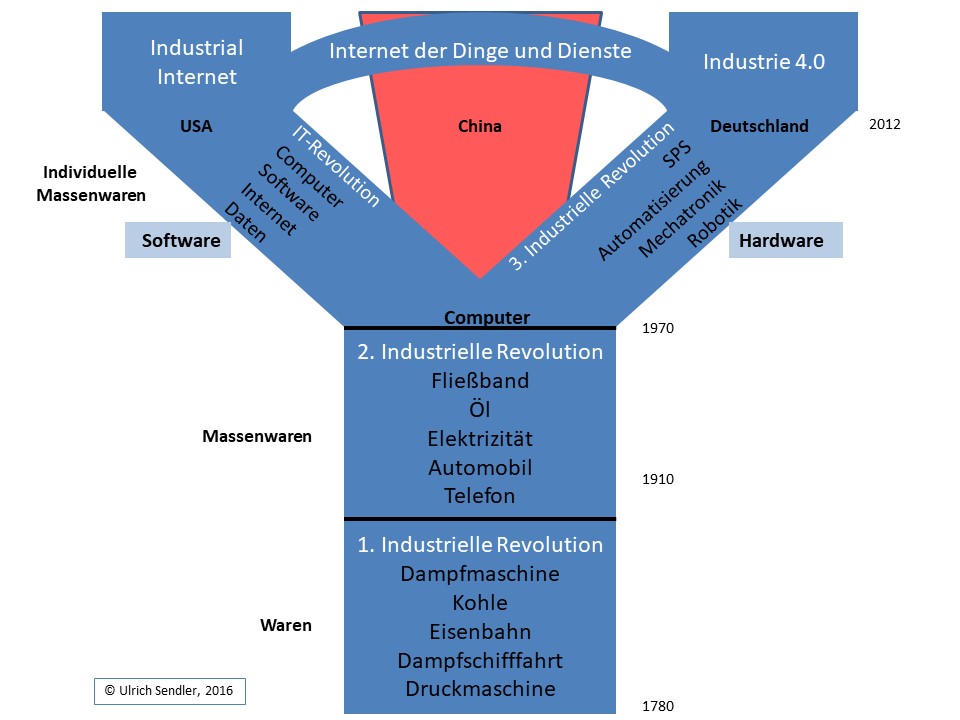Germany is a strong industrial location. The products are good. We are far ahead. But we could soon be facing the same situation as the USA and Great Britain: Industrial wasteland and, as a result, a deeply divided society. If we do nothing.
(The graphic is taken from my book “The Internet of Things” from 2018 and has lost none of its topicality.)
No leading industrialized country besides Germany and Japan has been able to retain about a quarter of its workforce in industry for 30 years. In the other industrialized nations of the West – led by the birthplaces of industrial society: Great Britain and the United States – barely 10 percent are still employed in industry.
The reason: Germany and Japan have digitized and networked their industrial products and their industrial processes – from design to supply chains – more consistently than any other country. The products are strong, work perfectly and are the benchmark for others. Germany set the line internationally with “Industry 4.0” ten years ago. Japan is pursuing the “Society 5.0” strategy, because the digital transformation of industry is laying the foundation for a new society.
In the USA and UK, on the other hand, there is hardly any industry worth mentioning. These nations rely economically for the most part on services in the Internet and cloud and on the financial sector. Both are largely removed from government regulation. And the societies are dangerously deeply divided.
The coming years will determine whether our manufacturing industry remains the heart of our economy. Sustainability, climate neutrality and global competition are making the pure business of physical products obsolete. The industry must change quickly and fundamentally: from tangible value creation, namely product manufacturing and product sales, to intangible value creation with product-based services from the network.
The strength of our hardware is our trump card here. But all products must be developed and manufactured as networked systems for services right from the design stage. Just as robust, of the highest quality and internationally marketable, but with the main purpose of product-based services on which our business is then based. And the prosperity of mankind. Climate-neutral, resource-conserving, sustainable, people-oriented.
Industry cannot do this on its own. Particularly in Germany, where the backbone and greatest strength are millions of tiny, small and medium-sized enterprises, our state must ensure that this path, and not clinging to old paths, is rewarded.

